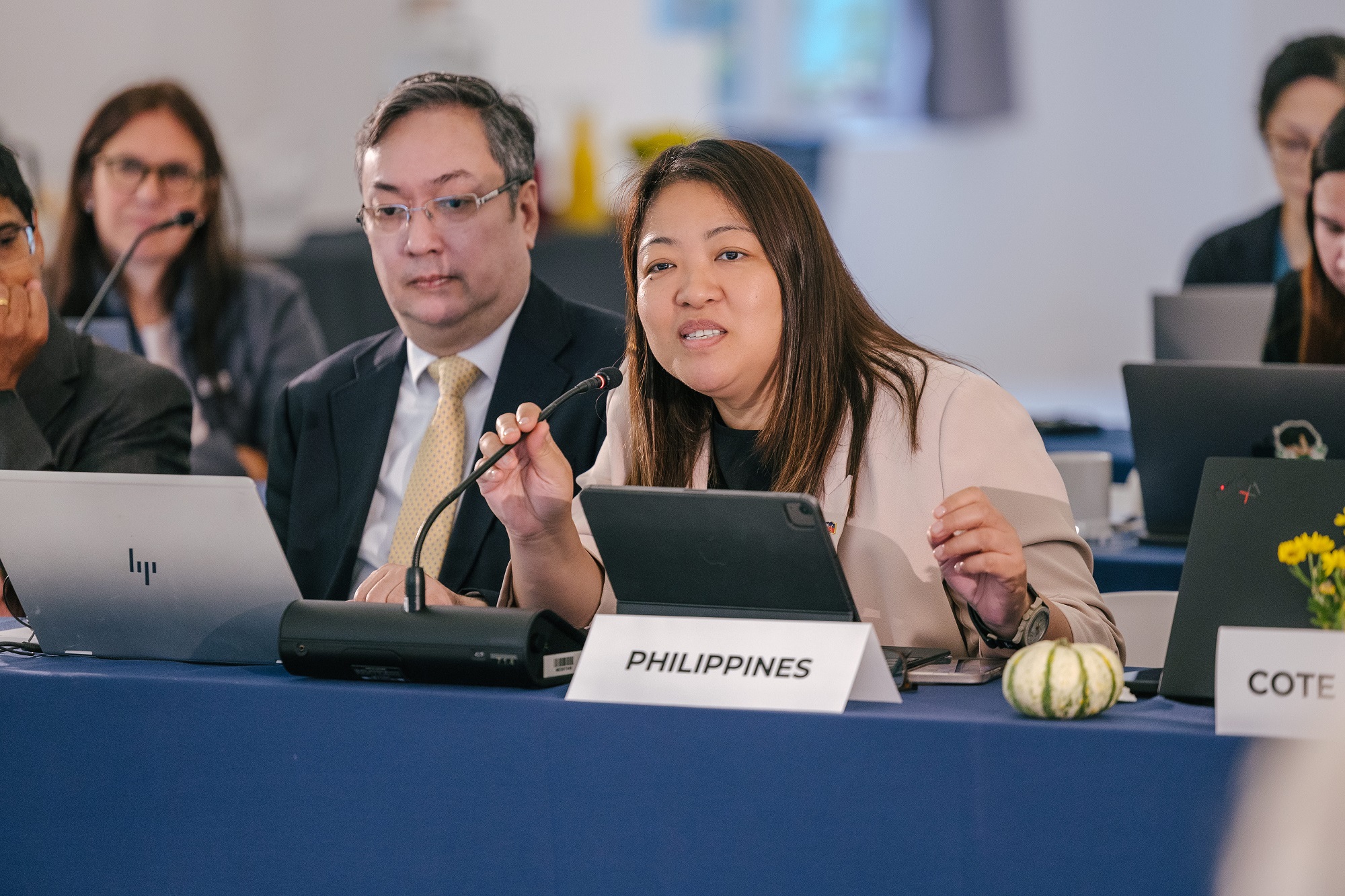
October 16, 2024 Wednesday

CCC Commissioner Rachel Anne S. Herrera and NEDA Undersecretary Carlos Abad Santos emphasized the Philippines’ goal to strengthen its commitment to climate action at the Nationally Determined Contribution Partnership Steering Committee Meeting in New York.
NEW YORK, 16 October 2024 – The Philippines highlighted the importance of international collaboration and national leadership in advancing climate action, aligning its efforts with the 1.5°C global goal during the Nationally Determined Contribution (NDC) Partnership Steering Committee Meeting held in New York, USA.
The two-day event gathered representatives of developing countries, developed countries and their funding organizations, multilateral development banks, and academia, who form part of the NDC Partnership steering committee, to discuss the current and upcoming work program aimed to support higher ambition in NDCs by 2025.
The Philippine delegation, led by Commissioner Rachel Anne S. Herrera of the Climate Change Commission (CCC) and Undersecretary Carlos Abad Santos of the National Economic and Development Authority (NEDA), expressed gratitude for the NDC Partnership's efforts to address the growing needs of developing countries.
During the meeting, Herrera acknowledged the NDC Partnership’s assistance, which includes resources from the Partnership Action Fund (PAF) and the deployment of in-country facilitators to help develop the Philippines’ NDC Partnership Plan.
She emphasized the need for sustained international collaboration and country-level leadership for successful climate action efforts. "The (NDC) Partnership is at a crossroads but is well-placed to seize the momentum. For the Philippines, we prioritize climate action from the highest and across all levels of government, aligning with our national development agenda.”
Herrera also highlighted the unique role of the NDC Partnership in guiding countries through climate financing mechanisms. "The platform has become the 'approach of choice' for many, including the Philippines, as we engage with bilateral partners and multilateral development banks to enhance our climate resilience," she stated.
She pointed out the importance of focusing on countries committed to implement and enhance their NDCs, those with the potential for transformative adaptation co-benefits, and those promoting inclusion and gender empowerment. Equally important are countries that may lack quantitative indicators but show promise through peer-to-peer learning due to positive outcomes and progress in realizing ambitious goals.
In his remarks, Undersecretary Abad Santos reiterated the Philippines' commitment to submitting an enhanced NDC by 2025. “The Philippines intends to submit an enhanced NDC 3.0, focusing on scaling up climate action and ambition on mitigation and implementation,” he stated.
This updated plan will establish a robust measurement, reporting and verification (MRV) system, emphasizing adaptation and resilience. He shared that the country’s NDC will revisit parameters and measures across various sectors, including agriculture, energy, industry, and forestry, while setting respective targets based on integrated modeling and economy-wide analysis.
Abad Santos stressed the importance of collaboration among government, development partners, the private sector, and stakeholders to assess progress, address barriers, and improve implementation coordination, ensuring that climate actions are both ambitious and feasible.
As the Philippines prepares to update its NDC for the 2025 cycle guided by the Paris Agreement, it will continue to prioritize adaptation strategies that address the immediate needs of its people while scaling up mitigation efforts to contribute to global climate goals.
The CCC remains committed to coordinating and collaborating with international partners to drive effective climate action and a climate-resilient future for the Philippines.
For more information on the CCC’s climate mainstreaming activities, visit www.climate.gov.ph and www.facebook.com/CCCPhl.